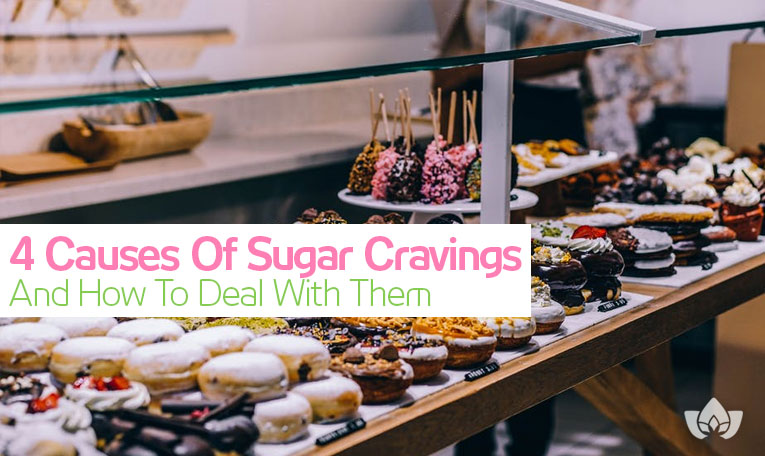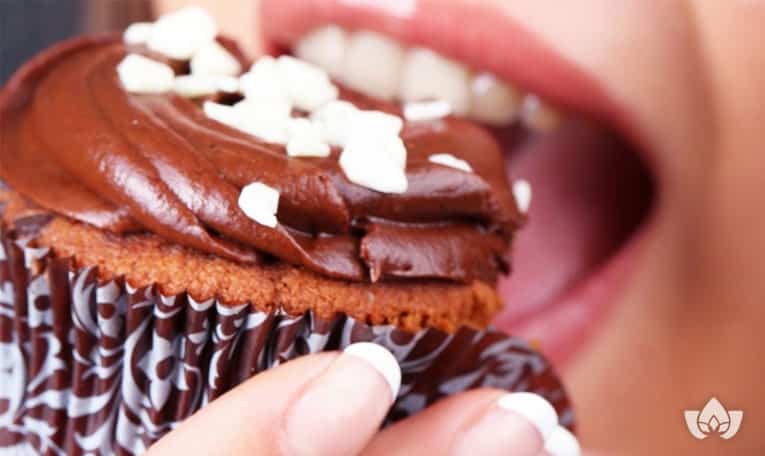Showing all posts tagged #mindfulclinic:
These 5 Nutrients Can Help You Reduce Stress
Posted on February 5th, 2018
How To Control Your Appetite And Reduce Junk Food Cravings
Posted on January 25th, 2018
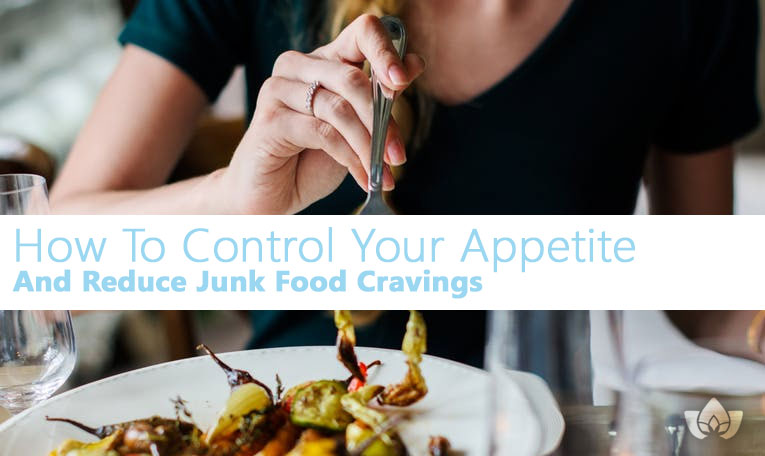
Have you noticed that the more you try to control what you eat, the hungrier you feel?
This is a common occurrence especially with people who are changing their diets.
As a Mississauga naturopathic doctor with a special interest in natural weight loss, I see a number of patients with a desire to lose weight.
What stands in their way?
A number of things, but a big one is cravings.
How can you control cravings for food?
Read on to find out.
Why Is Junk Food So Appealing?
Back in 2004, Dr. Michael T. Murray wrote an article for Total Health called “Key Triggers of an Increased Appetite and a Natural Solution”, and the information is just as relevant today as it was back then.
“The urge to eat reflects a very complex system,” he writes, “that has evolved to help humans deal with food shortage.”
In our natural human habitat, we didn’t have anywhere near as much access to food as we do today.
Our ancestors couldn’t just stroll down to the grocery store and pick up a mammoth steak.
They had to hunt and forage for it, and would sometimes have to spend a few days or more without eating.
The truth is that most of us, especially those who live in the developed world, have no idea what food shortage is like, and hopefully never will.
But your body doesn’t know that.
It behaves in much the same way as your ancestors’ bodies did tens of thousands of years ago.
Your body is interested in gaining weight, because the excess fat you develop is consumed by your body on the days where you don’t have anything to eat.
This is great for the natural world, but since most of us almost never go a day without eating, we end up continuing to store fat.
We build it up, layer upon layer, until we burn it off through exercise.
Or not, and we all know the results of that.
So you’re stuck with a situation where your mind is programmed to want to eat the food in front of you, pile on the fat, and only burn it when needed.
It’s no wonder so many of us struggle with weight loss.
But there is hope. There are measures you can take which will help you suppress your appetite, training your stomach to only send hunger signals to your brain when you are actually hungry.
Eat food to suppress your appetite?
It may seem counterintuitive, but it’s an integral part of any natural weight loss plan.
Here are five ways you can curb your appetite, naturally.
1. Have A Glass Of Water
When you’re hungry, your body sends a “hungry” signal to your brain.
And when you’re thirsty, your body sends a “thirsty” signal to your brain.
The problem is telling the difference.
A 2010 study published in the journal Physiology and Behaviour found that, among other things, the body’s mechanism for informing your brain when it needs food is eerily similar to its mechanism for telling you it needs water.
So the next time you’re feeling hungry at a time that doesn’t seem to make much sense, have a glass of water. You may actually be thirsty, not hungry at all.
2. Drink Some Herbal Tea
Certain herbal teas can also work as appetite suppressants.
Yerba mate and red raspberry leaf teas are especially effective for this.
They have stimulant qualities which help you feel fuller sooner after eating.
They have all sorts of other benefits as well.
Red raspberry leaf tea, for example, helps with pregnancy, can help ward off postpartum depression, and helps with male reproductive health.
Yerba mate, on the other hand, can help promote cardiovascular health by keeping fat from sticking to your arterial walls, helps with digestion, and has nearly twice as many antioxidants as green tea.
Speaking of green tea, it’s a great choice as well.
Not only can it curb your appetite, it can also help reduce the formation of fat cells by means of the flavonoid epigallocatechin gallate(ECGC).
As a result, green tea is an excellent weight loss aid.
Keep in mind, though, that green tea does have caffeine in it.
Less than coffee does, to be sure, but caffeine does come with its own set of risks.
It can cause high blood pressure, heart palpitations, behavioral changes and even cardiac arrest, especially in people who are sensitive to caffeine, or who have high blood pressure, arteriolosclerosis, or glucose intolerance.
If you have any of the above conditions, or if you have experienced a strong negative reaction to caffeine or other stimulants in the past, speak with your naturopathic doctor or primary health care provider before adding green tea or green tea extract to your weight loss plan.
3. Eat More Fiber
Fiber is not only a natural appetite suppressant, it also helps your entire digestive system function better.
Some of the best sources of fiber include apples, nuts & seeds, and vegetables with peels & skins, like potatoes or carrots.
Two of our new favourite teas, yerba matte and red raspberry leaf, can also provide some fiber in your diet.
4. Get Up And Move
Exercise. It’s the best way to control your appetite, boost your metabolism, and really, the best weight loss plan.
It’s not just about burning fat either.
Exercise affects your hypothalamus, the part of your brain in charge of your appetite, among other things.
One of its jobs is to keep you posted on your stomach’s state.
If you’re hungry, it lets you know.
And if you’re full, it lets you know that too.
Your hypothalamus is affected by the levels of certain chemicals in your blood, including glucose, serotonin, dopamine, adrenaline, and others.
A study by Zand, Spreen, and LaValle, showed that “physical activity reduces the levels of the hunger-stimulating chemicals that cause the appestat to start the stomach growling for food, and increases the levels of the chemicals that signal to the appestat that the body is humming along at peak efficiency and doesn’t require food”.
In other words, you can trick your body into thinking it isn’t hungry by exercising.
In fact, you can stave off hunger for up to six hours with exercise.
5. Supplement Your Diet
Here is a list of natural supplements which have been shown to help reduce appetite:
Evening Primrose Oil – 500 mg of evening primrose oil in the morning may help suppress your appetite for the entire day!
Gamma-Linolenic Acid – This is the active component in flaxseed oil, blackcurrant seed, and the evening primrose oil mentioned above. It helps suppress your appetite by helping control the metabolism of fats.
Cumin – in addition to helping suppress your appetite, cumin also helps aid digestion, improves immunity, helps with insomnia, and more!
Gymnemasylvestre – This herb can reduce or even eliminate the taste of sugar for up to 90 minutes.
Doctors have been using it in India for centuries to treat diabetes, and Western doctors are starting to warm up to it too.
If you have a sweet tooth, try taking some Gymnemasylvestre.
Contact The Mindful Healing Clinic
If you’re struggling to lose weight, contact us here at the Mindful Healing Clinic in Mississauga.
You’ll get a chance to sit down with me, Dr. Maria Cavallazzi in your FREE 15-minute health and wellness session.
During that time, you’ll get a chance to ask questions, and your concerns addressed, and find out how naturopathic medicine can help you with how to lose weight and keep it off.
Looking for an all-natural weight loss solution based on science and guided by a qualified healthcare professional?
Contact the Mindful Healing Clinic to book your FREE 15-minute session today.
Until next time,
Dr. Maria Cavallazzi, N.D
Mindful Healing Integrative Naturopathy
251 Queen St S Unit 4,
Mississauga, ON L5M 1L7
- https://goo.gl/maps/KYspifT7J232
Dr. Maria Cavallazzi is a medical doctor from Colombia where she practiced as a family physician for 8 years until she moved to Canada 16 years ago.
To read more information on health, wellness, and alternative medicine, please visit us here: Mindful Healing Naturopathic
What Is Acupuncture Used For?
Posted on January 17th, 2018
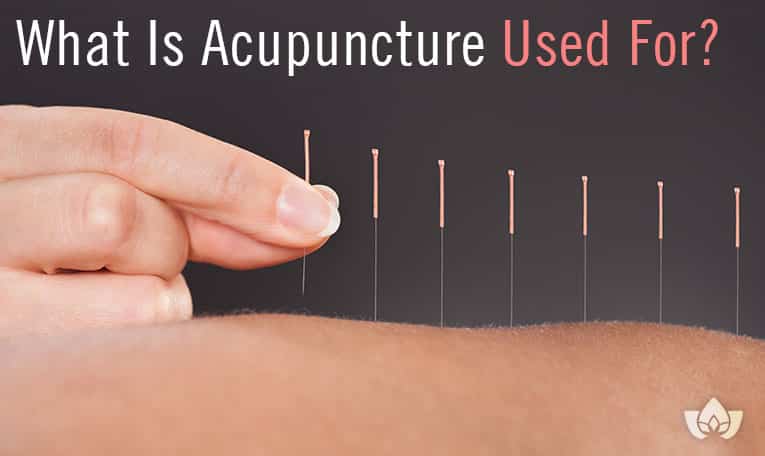
If you only know one thing about acupuncture, it’s probably the fact that it uses needles.
And if you have a thing with needles, the idea of acupuncture might scare the living daylights out of you.
But there’s a lot more to acupuncture than just poking you with needles.
In fact, even those who are frightened of needles often find the experience to be relaxing and peaceful.
As a Mississauga naturopathic doctor, I incorporate acupuncture into my practice as a useful tool for dealing with ailments.
I wrote this article to help you better understand what acupuncture is about and how you may benefit from it.
History of Acupuncture
Acupuncture may be one of the oldest methods of healing on the planet.
The earliest example of what might be acupuncture dates back to about 6000 BCE, where sharpened rocks and pieces of bone were used in place of modern acupuncture needles.
These items could have been used for simple surgical procedures (like lancing a boil or stitching a wound, for example), so it’s hard to say whether or not they were actual acupuncture needles.
The first confirmed example of what we may today recognize as acupuncture is written in The Yellow Emperor’s Classic of Internal Medicine, an ancient Chinese document dating back to about 100 BCE.
In it, we find a conversation between the Yellow Emperor, a mythological figure in Chinese history, and Chi-Po, a minister.
Having been practiced in China for millennia, acupuncture was practiced in North America by Chinese immigrants in the 1800s.
However, it wasn’t until Richard Nixon opened up relations between the United States and China that acupuncture began to gain ground in North America.
How Acupuncture Works
Acupuncture is based on the concept of how energy flows through the human body, which the Chinese call qi (pronounced “chee”).
The body’s qi moves along twelve main channels, called meridians, which are connected with the body’s major functions, though they don’t follow the patterns of blood vessels or nerves.
The body has 350 different acupuncture points. By placing needles at these acupuncture points, we can promote the flow of qi throughout the body.
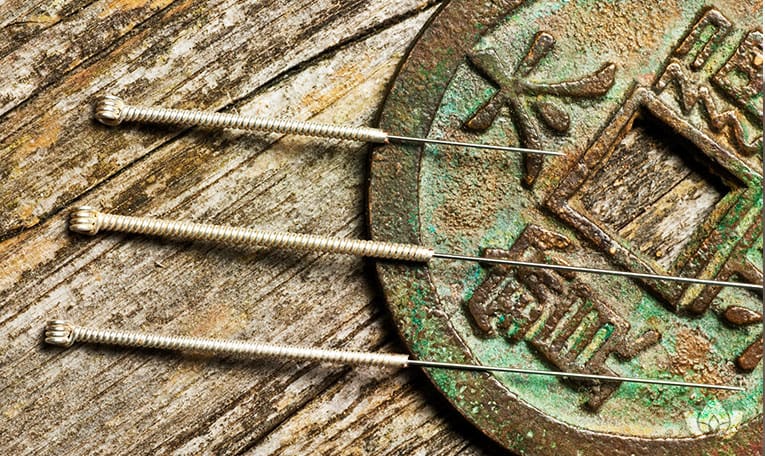
Benefits of Acupuncture
While science has had difficulty either proving or disproving the concept of qi, acupuncture has been shown to be effective for several different conditions.
Below is a list of some of the conditions for which evidence shows acupuncture can help:
• Fibromyalgia
• Urinary tract infections (UTI)
• Dysentery
• Tourette syndrome
• Blood pressure imbalance (high or low)
• Menstrual pain
• Peptic ulcers
• Sprains
• Whooping cough
• Morning sickness
• Rheumatoid arthritis
• Sciatica
• Tennis elbow
• Back pain
• Stress & anxiety
What To Expect
During an acupuncture treatment, you’ll lie down on a padded table in a treatment room.
Depending on which part of your body needs to be treated, you’ll have to remove some of your clothes.
We will provide you with a robe if necessary.
Next comes the needle insertion.
Acupuncture needles are thin and very tiny, so it usually causes only minimal discomfort.
If you do feel pain, though, let us know.
Once the needles are inserted, we may have to adjust them slightly.
Then we leave them in place for 25 to 45 minutes.
During that time, you’ll lie still and relax.
Afterward, we’ll remove the needles.
Some people report feeling extremely relaxed after an acupuncture treatment, while others claim to feel lighter, as though they’re walking on the Moon.
Others report no effect at all.
What you get out of your acupuncture treatment may vary drastically from someone else’s experience.
Acupuncture At The Mindful Healing Clinic
If you’re interested in exploring the possibility of acupuncture treatment, the Mindful Healing Clinic can help.
Contact us to book your FREE health and wellness session with Dr. Maria. You’ll get all your questions about acupuncture and naturopathy answered.
From there, Dr. Maria will listen to your health concerns and help you understand whether acupuncture is right for you.
Contact the Mindful Healing Clinic to book your FREE health and wellness session today.
Until next time,
Dr. Maria Cavallazzi, N.D
Mindful Healing Integrative Naturopathy
251 Queen St S Unit 4,
Mississauga, ON L5M 1L7
- https://goo.gl/maps/KYspifT7J232
Dr. Maria Cavallazzi is a medical doctor from Colombia where she practiced as a family physician for 8 years until she moved to Canada 16 years ago.
To read additional tips about health, wellness, and alternative medicine, please visit us here: Mindful Healing Naturopathic
How To Get Your Body Ready For Sleep With Yoga
Posted on December 27th, 2017
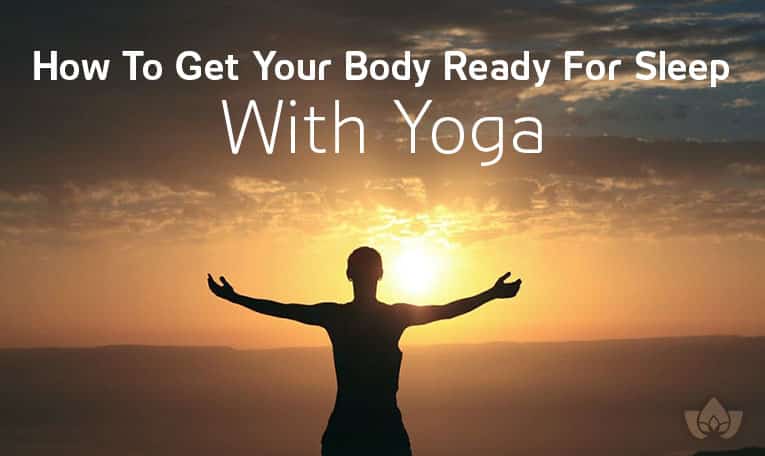
In our last article, we talked about some of the most common problems associated with insomnia from the perspective of a naturopathic doctor.
One of the tips was to begin a bedtime ritual to help your body unwind and prepare for sleep.
So today, I wanted to share with you a video to help you do just that.
It’s a yoga video by Yoga with Adrienne, who has a number of yoga videos on YouTube for all sorts of things.
If you like the video in this article, check out the rest of her channel.
But first, let’s talk a bit about yoga.
Benefits of Yoga
Much like naturopathic medicine, yoga’s techniques help promote the body’s innate ability to heal itself.
Like all physical activity, it can help with muscle strength, cardiovascular health, weight loss, and overall flexibility.
But one of the greatest benefits of yoga is its ability to help you manage the day-to-day stress of life.
By incorporating meditation and breathing exercises, it can help take your body out of its mode of heightened stress and awareness (the “fight or flight” response), and return to a state of peaceful relaxation.

Dangers of Yoga
Overall, yoga is considered safe.
However, it’s important to be aware of your own limitations.
If you have recently suffered an injury, or if you have a chronic injury to a certain area of your body, be careful not to push that area too hard.
Likewise, if you haven’t been terribly active lately, you may be at an increased risk of pulling a muscle or otherwise straining yourself.
Yoga isn’t supposed to hurt! If it is, you’re doing something wrong.
While the practice in the video you see below is extremely mellow, any physical activity comes with its own risks.
So be smart and be careful.
Without further ado, the video:
Contact The Mindful Healing Clinic
If you’re interested in living a healthier, happier, more optimal life, we can help.
Here at the Mindful Healing Clinic, we offer a FREE health and wellness session to first-time visitors.
During that session, you’ll get a chance to ask Dr. Maria questions about naturopathic medicine.
From there, Dr. Maria will listen to your concerns, and help you understand what you can do to begin improving your health.
To claim your FREE health and wellness session, contact the Mindful Healing Clinic today.
Until next time,
Dr. Maria Cavallazzi, N.D
Mindful Healing Integrative Naturopathy
251 Queen St S Unit 4,
Mississauga, ON L5M 1L7
- https://goo.gl/maps/KYspifT7J232
Dr. Maria Cavallazzi is a medical doctor from Colombia where she practiced as a family physician for 8 years until she moved to Canada 16 years ago.
To find more tips about health, wellness, and alternative medicine, please visit us here: Mindful Healing Naturopathic
How To Combat Insomnia, Naturally
Posted on December 21st, 2017
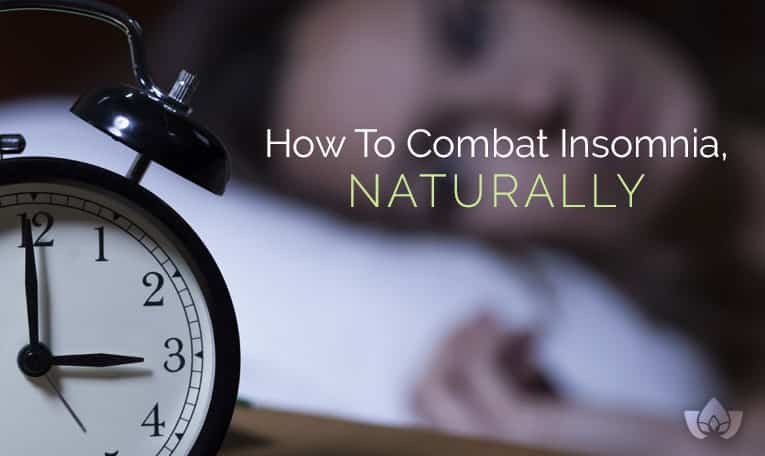
When it comes to maintaining your health, the habits you form around sleep can be just as important as your diet or your exercise, but it’s often the most overlooked of these three.
As a Streetsville naturopathic doctor, I face questions about this in my practice often.
It’s also a big problem.
According to research from the Canadian Sleep Society, about 20% of patients seeing primary care professionals complain about significant sleep issues.
But while some sleep issues are associated with deeper problems, the truth is that with a small change in our habits, many of us can enjoy a more restful sleep.
Here are some simple changes you can make in your life.
1. Sleep In Complete Darkness
A little night light in the corner may be comforting, but it’s preventing you from getting a good night’s sleep.
One of the functions of melatonin in your body is to regulate your circadian rhythms, and research has shown that exposure to light suppresses your body’s production of melatonin, which can interrupt your sleeping patterns.
Preliminary research from Harvard is exploring the link between low melatonin and cancer, and there is also experimental evidence linking it with obesity, diabetes, depression, and cardiovascular problems.
By investing in a set of black-out blinds for your windows and eliminating all sources of light, you may improve your sleep and reduce your risk of these disorders.
2. Keep A Consistent Sleep Schedule
Sometimes we think we can make up for a wild night by going to bed early the next night, but it’s not that simple.
Your body’s internal clock relies heavily on consistency to properly heal itself, so when you stay up late you’re disrupting that consistency, which can cause insomnia.
I know it’s hard sometimes if you have an event to go to, but going to bed and getting up around the same time can make a big difference in your quality of sleep.
Keeping a consistent sleep schedule allows your brain to more easily regulate when to release the hormones needed for sleep, and when not to.
3. Prepare For Sleep
Do you lie in bed browsing Facebook on your iPad or smart phone just before bed? If so, you’re doing your sleep a massive disservice.
Your brain needs to ease into things. Expecting it to go from active to sleep instantly is unreasonable.
Your body needs time to produce the hormones needed to send signals to the part of your brain in charge of regulating sleep, and it can’t do that when your brain is active.
If you find yourself lying in bed for what feels like hours before you can fall asleep, here’s a simple solution: turn off all your electronic devices about an hour before bed, and do something restful during that time.
Dim the lights, take a bath, read a book, do some yoga or meditation, or whatever else you like to do that’s relaxing.
Get rid of any distractions – both mental and physical – and you’ll have a much better sleep.
4. Avoid Bedtime Snacks
A bedtime snack is nice sometimes, but believe it or not, it can hinder the success of your sleep.
Eating a snack before bed, especially grains or refined sugars, will raise your blood sugar and send your hormone-producing organs into overdrive, which can not only make it more difficult to fall asleep, it will cause you to wake up at odd times.
Ideally, avoid eating before bed altogether. If you do need to, though, make it a snack high in protein.
This won’t increase your blood sugar, and the L-tryptophan in some proteins may help your body produce melatonin.
5. Check Your Vitamin Levels
Vitamin B12 deficiency has been linked with insomnia. It’s connected with your body’s production of melatonin, which we’ve already mentioned is an important hormone to help you sleep.
Higher levels of vitamin B12 in your system have been associated with increased production of melatonin.
According to a 2008 study in the journal Sleep Med, research is still being done on the link between vitamin deficiencies and insomnia, but they have found B12 linked to several factors involved in insomnia, including regulation of your circadian rhythm.
Calcium and magnesium deficiencies have also been linked with insomnia. Calcium levels are heightened during the REM phase of sleep, and an inability to achieve REM sleep has been associated with a deficiency in calcium.
Since REM is the deepest phase of sleep, you can see why this is a problem.
And as for magnesium, deficiency is associated with frequent interruptions in sleep, while a diet high in magnesium has been shown to eliminate these.
Contact The Mindful Healing Clinic
If you’re having difficulty sleeping, there are a large number of possible causes.
Contact the Mindful Healing Clinic to book your FREE health and wellness session.
During that session, you’ll get a chance to ask any questions you may have about naturopathic medicine, and Dr. Maria will help you understand your treatment options.
Contact the Mindful Healing Clinic to book your FREE health and wellness session today.
Until next time,
Dr. Maria Cavallazzi, N.D
Mindful Healing Integrative Naturopathy
251 Queen St S Unit 4,
Mississauga, ON L5M 1L7
- https://goo.gl/maps/KYspifT7J232
Dr. Maria Cavallazzi is a medical doctor from Colombia where she practiced as a family physician for 8 years until she moved to Canada 16 years ago.
To get more info about health, wellness, and alternative medicine, please visit us here: naturopathic clinic in Streetsville
Leaky Gut Syndrome: What It Is And How To Avoid It
Posted on December 6th, 2017
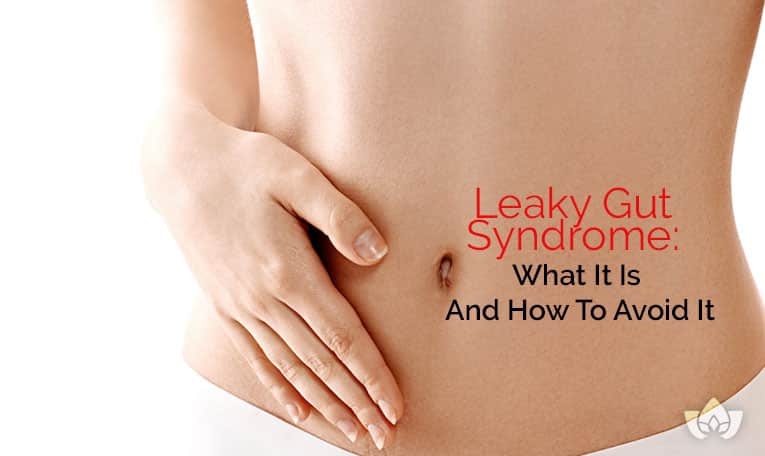
Last time, we talked about the health of your gut from a naturopathic doctor in Mississauga’s perspective, and how important it is in maintaining overall health.
Today, I wanted to talk to you about a specific gut issue – leaky gut syndrome.
What is leaky gut syndrome? What does it do? And more importantly, how do you avoid it?
Keep reading to find out.
“More bacteria live and work in one linear centimeter of your lower colon than all the humans who have ever lived.
That’s what’s going on in your digestive tract right now. Are we in charge, or are we simply hosts for bacteria?
It all depends on your outlook.” – Neil deGrasse Tyson
What Is Leaky Gut Syndrome?
Your digestive system is an incredibly large organ.
If you unravelled it and laid it all out, you could cover 250 square metres with it.
The vast majority of this would be your intestines – a long tube through which digested food is passed, nutrients are withdrawn, and waste is disposed of.
Your digestive system is also full of friendly bacteria which help maintain all sorts of bodily functions, including your immune system and your brain.
The contents of your digestive system are supposed to stay inside your digestive system – this is where they’re most beneficial to your body.
But when you have a leaky gut, the barrier of your intestines becomes permeated, allowing things to slip through the cracks and into your body, where they are definitely not beneficial.
Conditions Associated With Leaky Gut Syndrome
As things like toxins, antigens, healthy bacteria (at least healthy when it’s in your gut), and other microscopic organisms and particles pass through the gaps in your intestines, they can trigger an autoimmune inflammatory reaction within your body.
This can trigger a range of different health issues, including:
• Celiac disease
• Allergies and sensitivities to food
• Type 1 diabetes
• Autism
• IBS
• Rheumatoid arthritis
• Asthma
• Parkinson’s
These are serious issues, of course. So how can you avoid leaky gut syndrome?
To do that, it helps to know what causes it. Here are three of the primary causes of leaky gut syndrome.
1. Stress
When you experience high levels of stress, a number of different things happen in your body.
You’ll experience an increase in cortisol and adrenalin, which slows down your rate of digestion, speeds your heart rate, and restricts blood flow to your brain and your gut in favour of your muscles.
The end result is a burst of energy that was designed to help our prehistoric ancestors escape from a sabre tooth tiger or some other scary thing.
We commonly refer to this as the “fight or flight” response.
Once our prehistoric ancestors escaped from the threat, their hormone levels and blood flow returned to normal and they moved on with their day.
But these days, your fight or flight response is more likely to be triggered during a situation where you need to neither fight nor flee.
As a result, your body stays in fight or flight mode longer, which means the blood flow to your gut is restricted longer, which can lead to intestinal permeability.
In other words, leaky gut.
That blood flow is essential for the friendly bacteria in your gut to thrive.
But one of the important roles of these bacteria is to signal your brain with the response it needs to cope with your elevated level of stress.
So the more stress your body experiences, the less capable it becomes to actually cope with that stress.
Yikes.

2. Diet
As with just about everything health-related, dietary factors play a huge role in causing leaky gut syndrome.
But there are a few key offenders that we find in a lot of leaky gut cases.
First, alcohol.
A 2008 study published in Alcohol shows that during the process of digesting and metabolizing alcohol, the chemical acetaldehyde is created, which can lead to leaky gut.
Sugar, similarly, can cause inflammation in your gut which leads to a hostile environment for the friendly bacteria there, and can lead to a leaky gut.
Some of the other common culprits include:
• Dairy
• Gluten, particularly those who suffer from celiac
• Emulsifiers, solvents, and other artificial additives
• Glucose-heavy foods
Beginning an elimination diet can help you pinpoint what it is that may be causing leaky gut.
3. Pharmaceutical Medications
There is a specific type of pharmaceutical known as NSAIDs – Non-Steroidal Anti Inflammatory Drugs.
You may not have heard that name before, but you certainly know these drugs by their more common names – ibuprofen, acetaminophen, and naproxen will be three familiar examples.
These drugs are common in just about everyone’s medicine cabinet, and for good reason.
They’re relatively low risk and can help us deal with pain.
Occasional use is nothing to be concerned about.
However, long-term use has been shown to cause inflammation in the intestinal tract, as well as increase permeability, according to a 1998 study in the scholarly journal Gut.
It’s best to avoid taking these unless necessary.
Solutions For Leaky Gut Syndrome
If you believe you may be dealing with leaky gut syndrome, there’s a lot we can do to help.
Contact the Mindful Healing Clinic to book your FREE health and wellness session with Dr. Maria today.
You’ll get a chance to ask any questions you may have, Dr. Maria will address your concerns, and from there you’ll walk away with a better understanding of what you can do to address your health issues.
Contact the Mindful Healing Clinic to book your FREE health and wellness session today.
Until next time,
Dr. Maria Cavallazzi, N.D
Mindful Healing Integrative Naturopathy
251 Queen St S Unit 4,
Mississauga, ON L5M 1L7
- https://goo.gl/maps/KYspifT7J232
Dr. Maria Cavallazzi is a medical doctor from Colombia where she practiced as a family physician for 8 years until she moved to Canada 16 years ago.
To get additional information about health, wellness, and alternative medicine, please visit us here: Mindful Healing Naturopathic
3 Ways To Improve The Health Of Your Gut
Posted on November 29th, 2017

In this article, Dr. Maria Cavallazzi, ND at the Mindful Healing Integrative Naturopathy Clinic talks about the importance of gut health, and what you can do to improve yours.
More and more research is coming out showing a powerful connection between your gut and, well, a lot.
Some of the strangest, most unlikely health conditions, including anxiety, depression, skin conditions, asthma, and a whole lot of autoimmune conditions, can be directly linked back to poor gut health.
There are others, too, for which it shouldn’t be a surprise that they’re linked to your gut, which includes IBS, acid reflux, constipation, colitis, and diarrhea.
This means the allopathic method of disease identification, where a health problem is identified by the area it affects, is starting to become outdated.
Asthma, for example, was considered a lung problem because it affects the lungs, and acne is a skin problem because it affects the skin.
This isn’t entirely wrong, but it’s also incomplete.
Sometimes, health issues have to do with the place where they’re located in the body – like lung cancer in a lifetime smoker, for example – but your entire body is connected.
Treating a problem located in your lungs as a lung issue means you may miss the issues in other parts of your body which may be contributing to the problem.
But Why Is The Gut So Important?
Your gut is filled with trillions of microscopic organisms of an incredibly diverse nature.
According to a 2014 paper published in Cell Host & Microbe, there are over 1000 different species of microorganisms in your gut.
In the broadest sense of the word, these are “germs”, but they’re not like the germs you want to get rid of when you wash your hands.
Instead, these bacteria help you digest food, control your immune system, and regulate the health of your brain.
Each of these functions is important enough that you would have a difficult time living without them. So you can see how important the health of your gut is.
Why Do People Have Unhealthy Guts?
Here in the west, modern medicine has given us amazing things. But it has also caused some problems.
Antibiotics, for example, have been a lifesaver.
But when you take an antibiotic to fight off a disease, you’re essentially dropping a carpet bomb on your entire system.
Yes, it may take care of the harmful bacteria in your body, but it will take out a lot of your friendly bacteria as well.
And since we already talked about how important those bacteria are, we can see the damage an unhealthy gut can cause.
Below, you’ll find three tips on how to improve the health of your gut.
1. Eat A Fibre-Rich Diet
Fibre is an important part of keeping your gut healthy.
Interestingly, your body actually can’t digest it.
But the bacteria in your gut can, so by providing them with the nutrients they need, they can continue to work for you.
As a general rule, eating a diet rich in fruit, vegetables, and beans will provide you with enough dietary fibre. But some of the most fibre-rich foods include:
• Lentils
• Chick peas
• Broccoli
• Raspberries
• Artichokes
• Apples
• Almonds
• Pistachios
• Whole grains
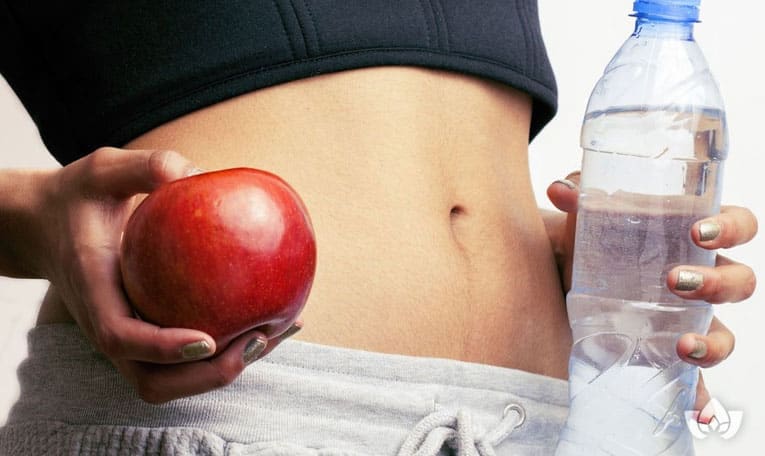
2. Eat Fermented Foods
Fermented foods are foods that have gone through a process called lacto-fermentation.
During this process, bacteria feed on the sugars and starches in the food, and in the process create lactic acid.
This helps preserve it, which is why sauerkraut lasts a whole lot longer than regular cabbage.
But it also fills the food with a variety of beneficial stuff, including B-vitamins, Omega-3 fatty acids, and some healthy bacteria, including lactobacillus.
Some of the most common fermented foods include:
• Yogurt
• Sauerkraut
• Kombucha
• Tempeh
• Kimchi
• Kefir
3. Limit Your Consumption Of Alcohol And Sugar
Now, alcohol is also a fermented food.
The process of creating beer, for example, relies on many of the same processes as creating sauerkraut.
After all, it’s essentially fermented barley.
However, alcohol can also lead to a condition called Leaky Gut Syndrome where the boundary between your gut and the rest of your body becomes permeable.
This means all sorts of things which are good for you when they’re found within your gut can escape.
We’ll talk more about Leaky Gut Syndrome in another article.
For now, limiting your consumption of alcohol and sugar can help you avoid Leaky Gut Syndrome, and improve the health of your gut.
Contact The Mindful Healing Clinic
Are you experiencing one of the conditions listed above?
Do you believe you may be suffering from poor gut health?
If so, contact Dr. Maria at the Mindful Healing Clinic to book your FREE health and wellness session.
You’ll get a chance to sit down with Dr. Maria and get all your questions answered.
From there, Dr. Maria will listen to your concerns and help you understand a treatment plan to address these issues and get you feeling healthy again.
Contact The Mindful Healing Clinic to book your FREE health and wellness session today.
Until next time,
Dr. Maria Cavallazzi, N.D
Mindful Healing Integrative Naturopathy
251 Queen St S Unit 4,
Mississauga, ON L5M 1L7
- https://goo.gl/maps/KYspifT7J232
Dr. Maria Cavallazzi is a medical doctor from Colombia where she practiced as a family physician for 8 years until she moved to Canada 16 years ago.
To get additional ideas on health, wellness, and alternative medicine, please visit us here: naturopathic doctor
3 Reasons Why Added Sugar Is Bad For You
Posted on November 22nd, 2017
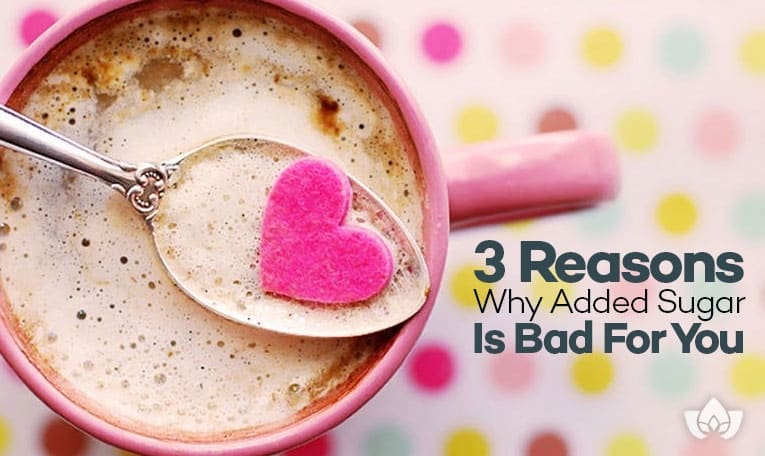
There are lots of things in our food we should be avoiding.
That’s no secret to any health-conscious person.
As a naturopath, most of my patients already know this.
And there’s some harmful stuff out there.
But arguably the worst of these is added sugar.
There are so many reasons why this stuff is terrible for you.
But first of all, what is added sugar in the first place?
What is Added Sugar?
In the broadest sense, you can lump sugar into two separate categories:
Naturally occurring sugar
Naturally occurring sugars are things like fructose, which you'll find in fruit, and lactose, which you'll find in dairy. They show up naturally in these foods, and this article is not about them.
Added sugars
Added sugars, on the other hand, are things like sucrose and high fructose corn syrup. They’re made artificially, and they’re added to sweeten things that wouldn’t otherwise be sweet.
But why is added sugar so terrible?
1: It Has Zero Nutritional Value
Added sugar is loaded with calories. So are a lot of other foods; a pancake breakfast, for example, can have more than 1000 calories in it.
But here’s the thing – added sugar has absolutely no essential nutrients in it.
This is why we call it empty calories.
If a significant number of the calories you take in come from added sugar, that can mean a big part of your diet is providing you with no nutritional value.
This creates the strange situation we face these days in the western world where people are simultaneously overweight and undernourished.
So essentially, added sugar is an entirely unnecessary part of your diet.
In fact, you could live a full, healthy, fulfilling life without having eaten a single bit of added sugar.
2: Sugar Is Highly Addictive
When you eat sugar, your brain releases dopamine in its reward centre.
And the way this works is similar to what happens when you use addictive drugs.
A 2008 study published in Neuroscience & Biobehavioral Reviews tested rats to see if they could develop a dependence on sugar.
By intermittently giving the rats access to sugar, they could get them hooked on the stuff.
They craved it in the same way rats who are addicted to drugs crave their next fix.
So if you have a personality that’s susceptible to addiction, you may be at a higher risk of developing a sugar dependency.
But the worst thing about sugar addiction is the culture surrounding sugar. If you offered someone a drink, for example, and they politely declined because they were a recovering alcoholic, would you push them to take the drink?
Of course not.
But if someone is offered a slice of cake and they say they’re cutting back on sugar, the reaction is generally something like “come on, one slice won’t hurt!” or “it’s bad luck not to have birthday cake!”
On top of this, sugar-added products are everywhere. If you want to stop drinking, don’t go to bars and you’ll be able to more easily resist temptation. If you want to stop eating added sugar though, you’ll need some strong willpower.

3: Added Sugar Is Hard On Your Liver
When you eat added sugar, your body breaks it down into two simpler sugars – fructose and glucose. Glucose is the more common sugar – it’s found in every single living organism on the planet, which means it’s in every single thing you eat.
We need the stuff.
Fructose, on the other hand, isn’t necessary for survival. When you eat fructose, it goes to your liver to be metabolized.
Now, this is one of your liver’s jobs, so a moderate amount of fructose (like from eating fruit) is perfectly fine.
Your body will turn it into glycogen, and store it in your liver until your body needs to use it to keep your blood sugar levels at a healthy level.
But your liver can only store so much glycogen.
And if your liver is already full, it will turn that excess fructose into fat.
So the more added sugar you eat, the more fat accumulates in your liver, which can cause some serious problems.
Sugar, Not Fat, Makes You Fat
In the past, doctors, nutritionists, and health gurus of all stripes suggested low-fat diets as the way to fight obesity and maintain a healthy weight.
It makes sense, right? You don’t want fat, so don’t eat fat.
Sadly, this isn’t the case. It’s sugar, not fat, that creates fat in our bodies.
Study after study has confirmed the causal link between sugar consumption and obesity. It’s also linked with diabetes and heart disease.
For example, if you drink one or two sugary drinks per day, you have a 26% greater chance of developing type 2 diabetes (source). You also have a 20% higher risk of having a heart attack, or dying from one (source).
In children, it’s even worse. For each can of soda a child consumes in a day, the odds of obesity increase by 60% (source).
These are just a few horrifying examples of what sugar can do to our bodies.
Contact Mindful Healing Clinic
If you’re hooked on sugar, there is help available.
Contact us at the Mindful Healing Clinic to book your FREE health and wellness session.
You’ll get a chance to explain your concerns and ask any questions, and from there we’ll help you understand what comes next.
Contact the Mindful Healing Clinic to book your FREE health and wellness session today.
Until next time,
Dr. Maria Cavallazzi, N.D
Mindful Healing Integrative Naturopathy
251 Queen St S Unit 4,
Mississauga, ON L5M 1L7
- https://goo.gl/maps/KYspifT7J232
Dr. Maria Cavallazzi is a medical doctor from Colombia where she practiced as a family physician for 8 years until she moved to Canada 16 years ago.
To learn additional info on health, wellness, and alternative medicine, please visit us here: naturopathic doctor in Streetsville
What Causes High Blood Pressure and How To Reduce It
Posted on November 15th, 2017
4 Causes Of Sugar Cravings And How To Deal With Them
Posted on November 10th, 2017
Cravings.
We all get them.
And we all have our weaknesses when it comes to food – even naturopathic doctors!
Whatever your weakness is, though, most of it leads back to sugar. Refined and artificial sugars, specifically, like the white sugar we put in coffee, or high fructose corn syrup.
Our bodies crave this stuff, whether we know it’s bad for us or not.
Now, there are many reasons why refined sugar is bad for you, but that’s a subject for another article.
This article is about cravings and how you can overcome them.
How To Solve A Problem
We’ve all dealt with problems in our lives.
Big or small, it doesn’t matter.
The thought process is similar.
The first step toward solving a problem is to understand the problem in the first place.
“If I had an hour to solve a problem I'd spend 55 minutes thinking about the problem and 5 minutes thinking about solutions." – Albert Einstein
Sometimes this step is easy.
If you have a broken window, for example, you already understand the problem.
And the solution is pretty obvious.
But when it comes to health, things are a little trickier. You may have cravings, for example, but if you don’t know where those cravings are coming from you won’t know how to control them.
So that’s our first step – figuring out where your cravings come from.
Where Do Cravings Come From?
It would be nice if cravings all came from one place.
Then I could tell you exactly what to do, and that would be the end of it.
This article could be a single paragraph long.
But things aren’t that simple.
Because each of us is unique, each of us has our own cravings and our own causes for those.
In fact, there are four main causes of cravings.
Your cravings may be caused by one of the four you find below, or a combination of two or more.
Read on to find out where your cravings are coming from and what you can do about it.
Bacterial Cravings
We’ve come to think of bacteria as a bad thing.
We use antibacterial soap and hand sanitizer to wash our hands, antibacterial cleaners to clean our houses, and when we get sick, medical doctors prescribe antibiotics to kill the germs.
The truth is some bacteria are bad. But most of it is good. In fact, you wouldn’t be able to live without it.
According to a recent research paper published in PLoS, the ratio of bacteria to human cells in your body is about 50-50.
That means your body is made up of as many bacterial cells as human cells.
So when it comes to calling the shots in our bodies, these bacteria have a lot of sway.
The same study above will tell you that most of these bacteria live in your digestive tract, mostly your colon.
By using your body’s vagus nerve, these bacteria can communicate with your brain and tell it what they want.
And what these bacteria love more than anything is sugar.
This is especially the case when you have a build-up of candida or other yeast in your body, which feeds off this stuff.
What’s the solution? Food with antifungal properties can make a big difference – like the lauric acid found in coconut oil.
Probiotics are also your friend here – they help promote the growth of healthy bacteria in your body.
Of course, it’s best to speak with a healthcare practitioner, like a naturopathic doctor, to find out what’s really happening and plan accordingly.
Emotional Cravings
It’s always easier to avoid eating something when we’ve never eaten it before, and that’s because we have no emotional connection to it.
That’s why it’s easier for someone who was raised vegetarian to stick to a vegetarian diet than someone who transitioned to a vegetarian lifestyle in their mid thirties.
Now, there’s nothing wrong with having an emotional connection to food. In fact, it’s impossible not to.
We’re emotional beings, and we have feelings.
We eat with the people we care about, and that creates emotional bonds around food.
We see this in most community-oriented animals in nature.
Eating together strengthens social bonds.
But there’s an important question to ask when it comes to your emotional relationship with food.
Are you eating something because you want to increase your positive emotions, or because you want to decrease your negative ones?
Nutritional Cravings
In the modern world, we’re faced with a bizarre dilemma.
The prevalence of sugary, artificial food is all around us, making us fat.
At the same time, these foods are devoid of the essential nutrients your body needs to thrive.
So, paradoxically, many people today are both overweight and malnourished.
Your body recognizes this, and wants to do something about it, which sometimes draws us to the very foods we should be avoiding.
For example, most women love chocolate.
That’s a pretty safe thing to say.
But most women are also deficient in magnesium. And guess where you can find magnesium?
That’s right, chocolate.
Yes, you’ll get the magnesium you need.
But you’ll also get all sorts of drawbacks, especially if the chocolate you’re eating has added sugar.
Speaking to a naturopathic doctor who specializes in clinical nutrition can help you find out if you’re deficient in any particular vitamin or mineral, and how you can make that up with your diet or through supplementing.
Physical Cravings
Food is fun! It lights up all sorts of pleasure sensors in your brain.
But many of us don’t have enough pleasure in our lives these days.
Adults especially seem to have forgotten how to have fun.
We live our lives in stuffy offices or job sites, focused on working hard all the time.
And there’s nothing wrong with working hard, but we need to mix some pleasure into that as well.
For many people, though, the only socially acceptable pleasures for adults to indulge in are alcohol, sex, and, you guessed it, food.
So if you’re using overly sugary foods to fill a void in your life, you may want to think about where else you can find joy and excitement elsewhere in a healthier manner.
Contact Dr. Maria At Mindful Healing
When it comes to food, the question to ask is a simple one: is this food serving me, or is it covering up some sort of need in my life?
If you’re truly enjoying your food, you likely have a healthier relationship with it.
But if you’re using it to cover up something, there may be deeper issues.
To find out how you can improve your relationship with food and start living a healthier life, contact us at Mindful Healing.
You’ll get a FREE health and wellness session, where Dr. Maria will listen to your concerns, answer your questions, and help you put together a treatment plan to help you enjoy a healthier, happier life.
Contact Mindful Healing Clinic to book your FREE health and wellness session today.
To see more tips on health, wellness, and alternative medicine, please visit us here: find a naturopath

The Mindful Healing Clinic is run by Dr. Maria Cavallazzi, naturopathic doctor in Mississauga. If you’re looking for the highest quality holistic care with a doctor who takes her role as a teacher as well as a healer equally seriously, who will listen to your concerns and provide you with a real solution, the Mindful Healing Clinic is for you. Contact the Mindful Healing Clinic to book a FREE health and wellness session to find out how you can benefit from naturopathic medicine. Visit us at: http://mindfulclinic.ca/ 251 Queen St S Unit 4, Mississauga, ON L5M 1L7 905-819-8200 https://goo.gl/maps/KYspifT7J232


